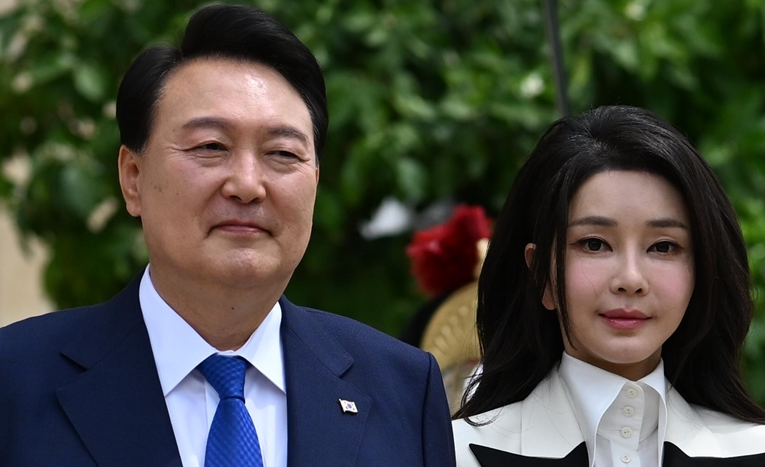Yoon’s Martial Law Madness, South Korea on the Edge of Crisis
In a stunning and dramatic move, South Korean President Yoon Suk Yeol declared “emergency martial law” on Tuesday night, accusing the country’s opposition of controlling the parliament, sympathizing with North Korea, and paralyzing the government with what he called “anti-state activities.” This surprise announcement in a late-night televised address sent shockwaves through the nation, intensifying the political crisis.
As Yoon’s declaration echoed across the country, opposition leaders gathered at the National Assembly, their defiance growing stronger. Reuters captured images of helicopters buzzing in the Seoul skyline while South Korean troops were seen securing the Assembly building, preventing protesters from entering. Unverified reports on social media suggested that tanks had rolled through the streets of the capital, fueling fears of escalating unrest.
Yoon’s televised speech painted a dire picture. He vows to “eradicate pro-North Korean forces” and safeguard the country’s “constitutional democratic order.” Yet questions swirl about how his extreme measures will impact the nation’s governance and democratic institutions. The severity of his actions left many wondering if South Korea was on the brink of a political and constitutional crisis.
♦Also Read| The War We Fear- NATO Nations Warn Citizens to Prepare for Nuclear War
This bold and controversial move comes when Yoon, whose approval ratings have plummeted, faces fierce opposition from the left-wing Democratic Party, which controls the National Assembly. Since taking office in 2022, Yoon has struggled to advance his conservative agenda, particularly over the next year’s budget bill. Adding fuel to the fire, he has resisted calls for independent investigations into scandals involving his wife and high-ranking officials, drawing fierce condemnation from his political enemies.
As tensions mount and protests spread, South Korea stands at a dangerous crossroads—its future hanging in the balance, with the country’s democratic stability threatened by an increasingly divided political landscape.

